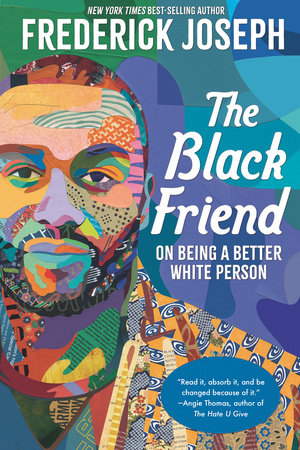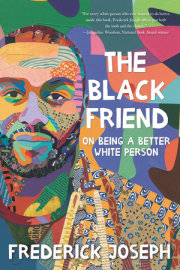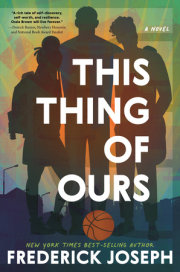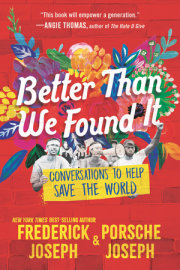INTRODUCTION One of the most important lessons I learned when I was younger was that being a Black person in this world usually means that at some point, you’re going to have to do things you don’t enjoy. Even more important was learning that many of those things are going to include white people.
For me, that has meant spending a lot of my time as an adult discussing white supremacy, white privilege, and the negative aspects of whiteness in general.
If you don’t know what a bolded word or term means, don’t worry: I’ve defined it at the back of the book. Yes, friends: it’s your very own Encyclopedia of Racism. Anyone who truly knows me would tell you I’d much rather spend my time tweeting about the Lakers, watching rom-coms, or sleeping. But, as I learned a long time ago, there aren’t enough people addressing societal issues, so here I am.
Because of how publicly critical I am of the impact white people have, and have had, on people of color and on the general world around them, some people have gone so far as to say I hate white people.
Honestly, this deeply offends me, as I’ve been to over ten John Mayer concerts and at least two hockey games; there’s no way a person who hates white people willingly attends the two whitest events on earth multiple times.
That said, my one actual problem with white people is that many just don’t have any sense of accountability when it comes to people of color. Accountability not only for the things white people do that often make interacting with them the most frustrating and tumultuous part of our days. But also, accountability for the historic and current inequities and disparities plaguing Black people and people of color as a whole.
Which is why I’ve written this book. Not because of the fame, fortune, and chance to meet Oprah—though those would be pretty dope. But, as a Black person, I speak on behalf of people of color (except those of us on Fox News) when I say: WE HAVE A WHITE PEOPLE PROBLEM.
My aim is to help you go from being a person who is learning and unlearning things about these problems created and perpetuated by white people to someone who actively works to solve them. This is called being an antiracist.
I define antiracists as people who understand that white supremacy isn’t something to empathize with Black and brown people over. It’s a destructive system and existence that white people created, and antiracists are actively trying to end it.
While many believe there is no way to change the problem, because they believe there is no way to change white people, I disagree. Because after sitting with and talking to many white people throughout my life, I’ve come to realize that there are white people who do care and who I believe want to make change. But these same white people often don’t understand the negative impact they are having or how to be better, because many of them have never had the conversations necessary to know this stuff, either in the classroom or outside of it.
Let’s face it: Black people and people of color are taught in school, in the media, and in everyday interactions to be empathetic and understanding of white people and their history. But most white people never have to do the same for us.
You’ll notice I don’t capitalize the w in white when referring to white people, though I capitalize the B when referring to Black people. This is a personal preference, because white people are simply defined by the color of their skin, while Black people are a cultural and ethnic group. For example, I’ve never met a white person who doesn’t know who Christopher Columbus was (even though he didn’t discover anything). But most white people can’t have an informed conversation about the indigenous people who were already in America and the lingering impact on indigenous people today of so many of their ancestors having been slaughtered by people like Christopher Columbus. Nor do most white people know anything about the white supremacist massacre of Black people in Tulsa, Oklahoma—though most white people can tell you that Kevin Durant and Russell Westbrook played together on the Oklahoma City Thunder.
To put it plainly, we have to learn a lot of white crap, including white history, much of which is not even true. Meanwhile, white people never have to learn about us, because doing so would force white people to be held accountable for the many ways they’ve mistreated—and continue to mistreat—people of color.
This book is an opportunity to change that. To provide some of the context and history that is so often lacking for white people.
Heck, we even added the Encyclopedia of Racism because my white editor pointed out that many of you reading this might not understand some of the terms that I’ll be using, some of the events I refer to, or why certain things are racist. I hope you already looked up white privilege, from page 00. Here’s another opportunity to use the encyclopedia: if you aren’t familiar with the 1921 Tulsa Race Massacre, go to the back of the book and learn about it. But to the point about people who think white people can’t change: I understand, and have met those white people, too. These are the types of white people who will say things like “Black people need to get over slavery” or “We had a Black president; there is no more racism.” These are people who want white supremacy to continue because it benefits them. They are the same people who will say this book sucks, never having read it.
But this book isn’t for those white people. It’s for the ones who want to do better, who want to
be better. But where do white people start? How does someone learn empathy? Is it by watching a specific movie? Listening to an album?
I think it starts with understanding.
Copyright © 2021 by Frederick Joseph. All rights reserved. No part of this excerpt may be reproduced or reprinted without permission in writing from the publisher.













